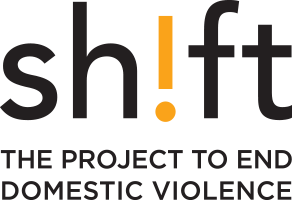FATHERHOOD
Rationale
Despite a growing recognition of the importance of fathers, international and Canadian studies suggest that a majority of parenting policies and interventions focus almost exclusively on mothers. Yet the research is clear, positive involved fathering is associated with increased emotional well-being, increased emotional well-being, cognitive competence, problem-solving ability, school achievement, social competence, empathy, and reciprocity along with decreased criminal behaviour, violence and aggression, and substance abuse in children and youth. If poor parenting practices, including negative and abusive behaviour towards children can be transferred inter-generationally, supporting fathers to become more positively engaged in the lives of their children is a promising strategy to prevent domestic violence in the next generation.


Our Response
Our research indicates that fathers who are positively engaged take an active role in caring for their child’s social, emotional, cognitive, and physical health, and they promote their child’s well-being and security. In addition, positive father involvement means that fathers take on nurturing and caretaking roles, and model behaviours that promote gender equity and peaceful ways of resolving conflicts.
Until recently, the vast majority of parenting research and interventions have focused on mother-child relationships. Research is now pointing to the vital and distinct role that fathers play in child development. We now understand that fathers influence their children independently from mothers, and as strongly as mothers. Fathers are increasingly involved in child-rearing in two parent families, and there is a clear trend toward shared custody and shared parenting in families in which the parents are separated or divorced.

In 2015, we released the Men and Boys Violence Prevention Project: Informing a Government of Alberta Action Plan to Engage Men and Boys to Stop Violence Against Women. One key priority within this action plan was the need for new funding and support to increase positive fatherhood involvement as a domestic violence prevention strategy. Subsequently, we produced No Man Left Behind: How and Why to Include Fathers in Government-Funded Parenting Strategies, which draws on five different research methods to provide findings and recommendations specific to the Government of Alberta and the policies and programs they support.
In 2013, we released Promoting Positive Father Involvement: A Strategy to Prevent Intimate Partner Violence in the Next Generation.This report is situated within a broader research agenda designed to serve as a foundation for a comprehensive strategy to engage men and boys in violence prevention to reduce rates of domestic violence in Alberta. This report inspired a partnership with Catholic Family Services, in Calgary, AB focused on implementing a primary prevention strategy targeting teen and young fathers. As a result, Catholic Family Service has implemented a new program titled: “Father’s Moving Forward” and have committed to ensuring all of their programs – agency-wide – are father-friendly. As well, we are co-hosting the Promoting Positive Fatherhood Collective; where over 40 local agencies and funders attend regular meetings to learn how to become father-friendly and to embed best practices throughout their organization.


